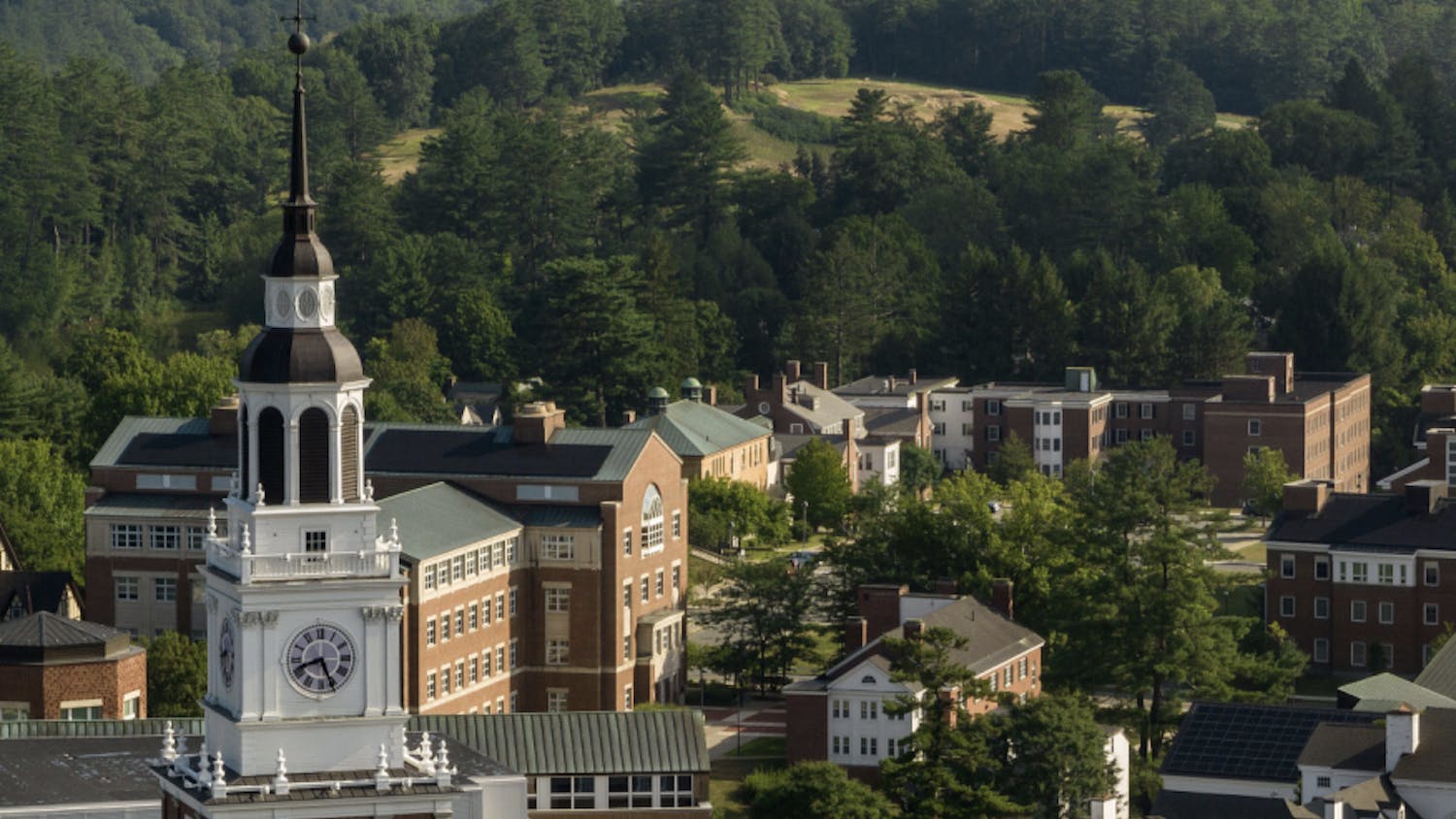About a decade ago, Massachusetts Institute of Technology history department chair Craig Steven Wilder, then a professor at Dartmouth, began to research how black abolitionists were excluded from colleges before the Civil War. After discovering that some of these abolitionists had attended the College, he turned to the archives of Rauner Special Collections Library, where his findings took him through college founder Eleazar Wheelock’s personal papers and Samson Occom’s diary to the intersection of American slavery and colonial colleges.
Ten years later, Wilder presents a thorough account of this tangled relationship in his book “Ebony and Ivy: Race, Slavery, and the Troubled History of America’s Universities,” which discusses the ties between American slavery and early colleges, including Dartmouth and other Ivy League institutions, and how the nation’s first colleges were involved with the institution of slavery.
The book addresses Wheelock’s slave ownership, and recalls a time when there were more slaves on campus than students and faculty.
“My major hope is that it’ll allow us to have a more engaged and sophisticated discussion about a difficult topic,” Wilder said. “We can look at a very different and complicated history and learn more about ourselves as a nation and a people, and I think that’s the real purpose of history.”
Wilder earned his PhD from Columbia University and has worked at Dartmouth, Williams College and MIT, all of which appear in the book. He said the book is intended to provide a more nuanced understanding of life in the American colonies and the origins of a country that “wrestles” with the complicated history of slavery.
“We have to take up difficult topics,” he said. “We have to look at difficult things and we have to have the courage to allow ourselves to be a little bit vulnerable in order to better understand our origins and our future.”
The role of slavery in early American higher education institutions gained prominence in recent years, highlighted by a 2006 report released by Brown University that chronicled the role of slavery in the school’s founding and early growth. Wilder said that while the report contributed to discourse, it made Brown seem unusual when in fact many other schools have similar pasts.
Over the course of his research, Wilder realized that the College operated in the “same world” as other schools. Colonial colleges faced a variety of challenges, and their ability to integrate themselves into the broader economy was essential to survival.
“Part of what I wanted to do with the book is show that for all of these early institutions, one of the central primary determinants of whether or not they survived was their ability to actually access the broader Atlantic economy, which meant also the slave trade and slaves,” he said.
Retired history professor and College history expert Jere Daniell ’55 said that the Dartmouth described in Wilder’s book existed in a “totally different world.” Slavery was a “norm” in society until after the American Revolution. Daniell noted that modern standards cannot be applied to historical situations like Wilder’s topic.
Wilder said he avoids labeling some institutions as better or worse than others. College archivist Peter Carini, however, said that he believes Dartmouth’s role may be less dramatic than other colleges, although the College, and Wheelock, undeniably had a relationship to slavery.
“So there’s a lot of this talk about how Wheelock came up here and carved the College out of the wilderness,” he said. “Well, he had three or four slaves with him at the time and you better believe they were doing a lot of the carving.”
Dartmouth’s history with slavery and the civil rights movement tells a mixed story with “interesting dichotomies,” Carini said. Dartmouth accepted and graduated an African-American student far earlier than most Ivy League institutions.
Meanwhile, Nathan Lord, who served as College president during more than half of the Civil War, was a supporter of slavery, though he was eventually forced into resignation and his house was ultimately given to the College’s first African American society about a century later, Carini said.
While working on his book, Wilder gave some talks on his early research at the College, which afforded him the chance to find students and faculty interested in similar questions. His students’ excitement about the topic made his work more fun as a historian.
Wilder said he hopes the book will help readers learn about the difficult history of slavery and American colleges.
“We can’t run away from our past for long,” he said. “Ultimately we have to just stop and confront the realities of it, and I hope the book helps people do that.”



